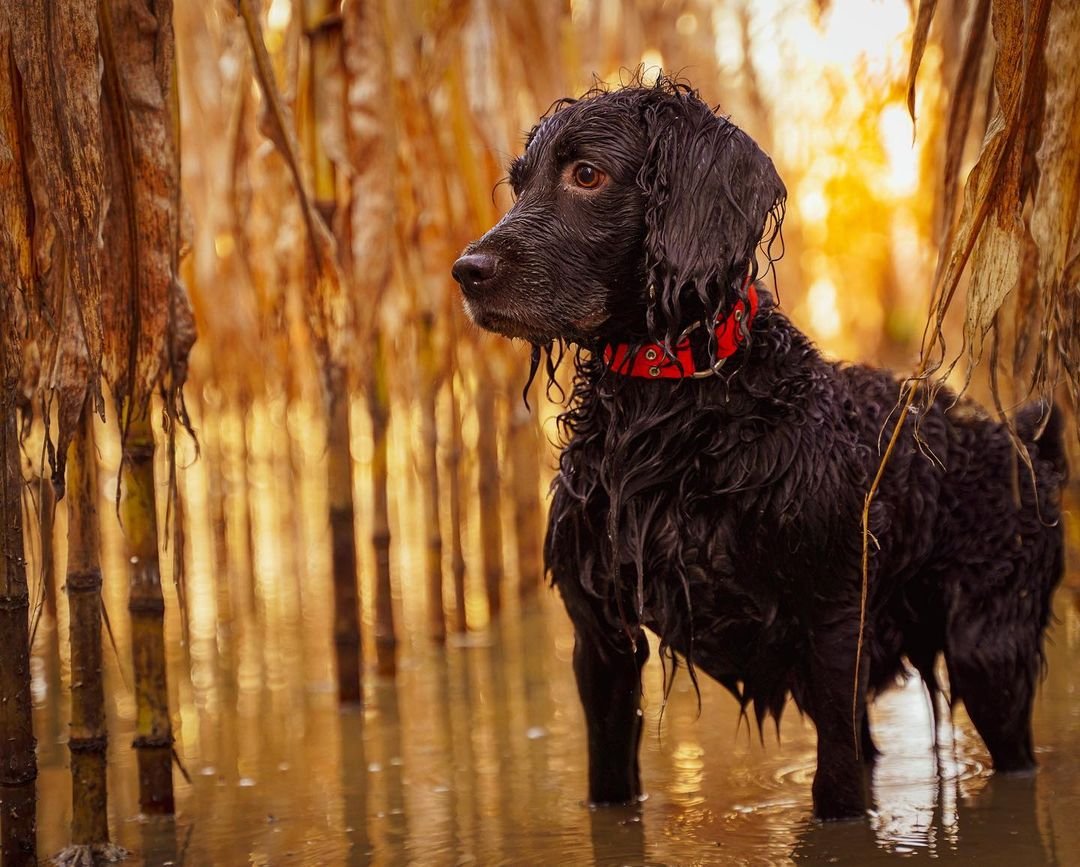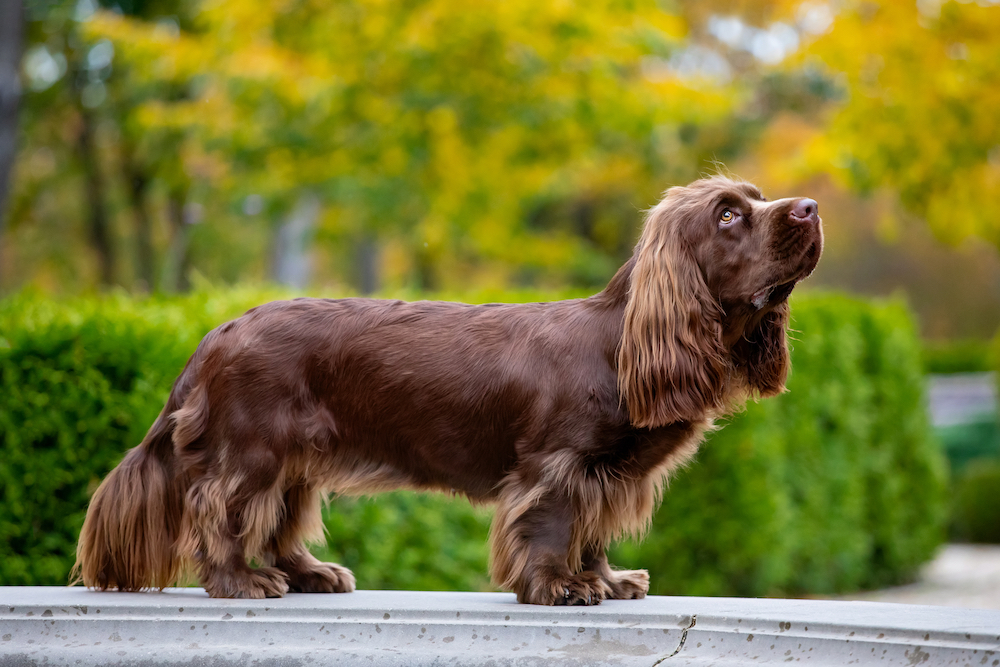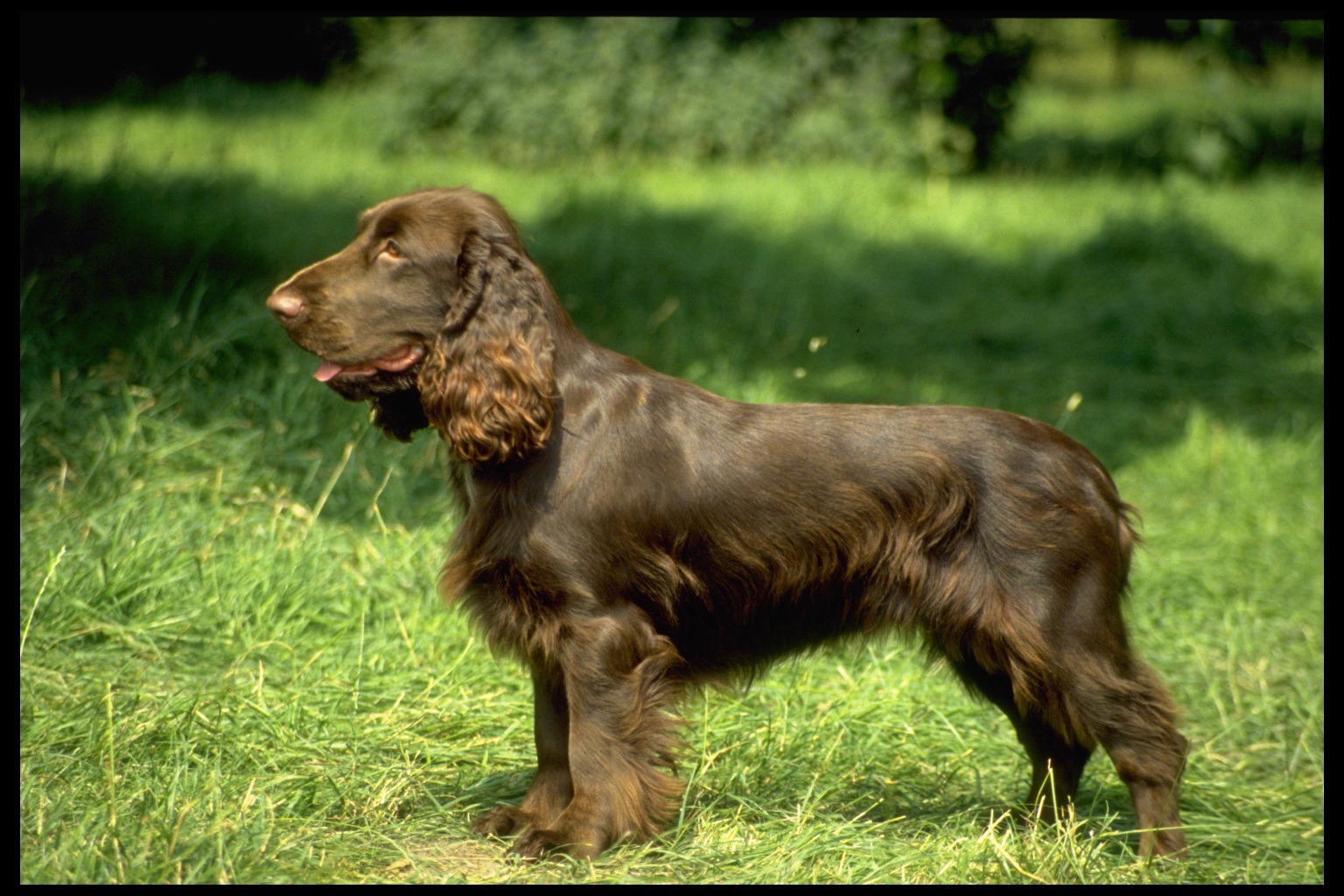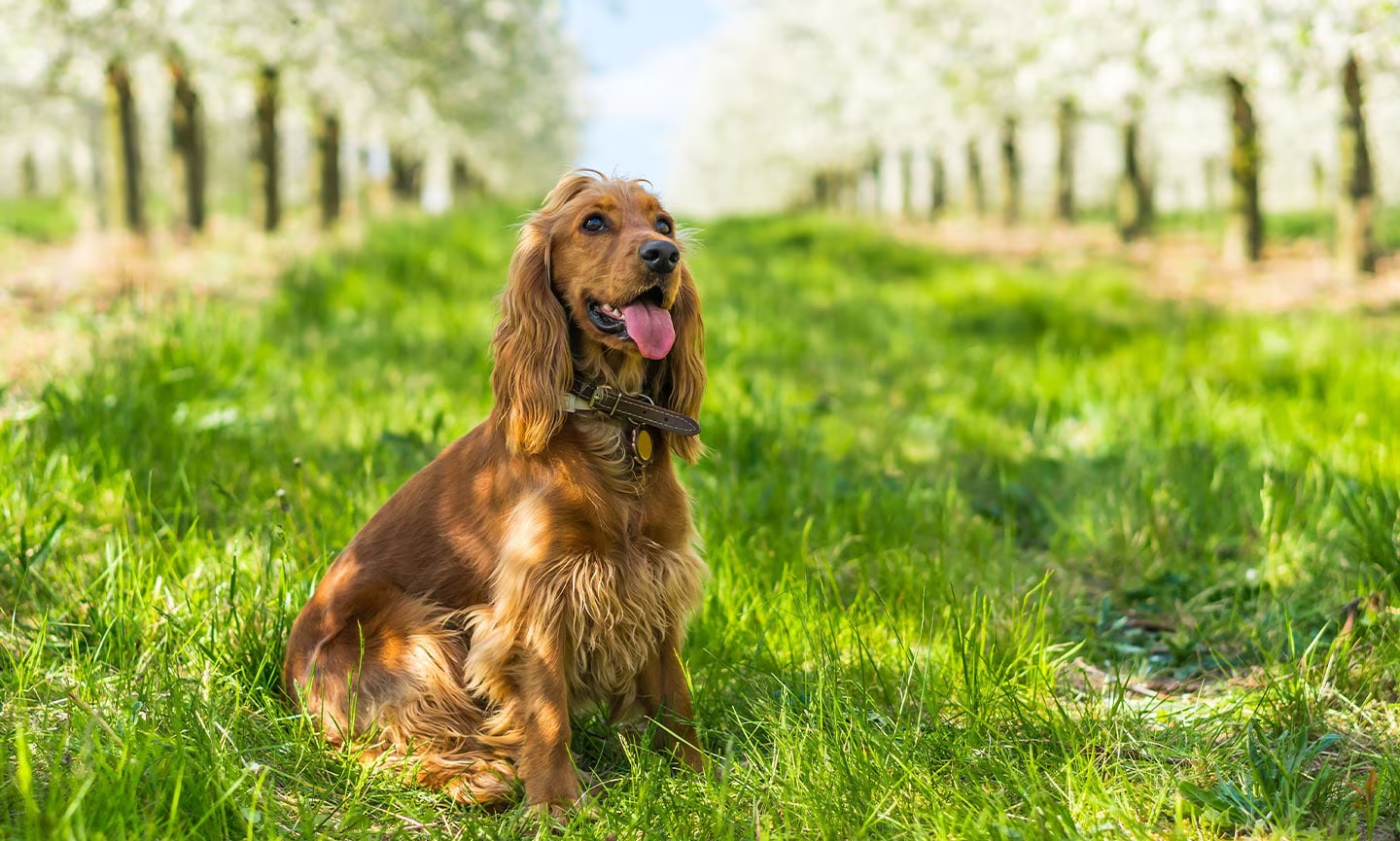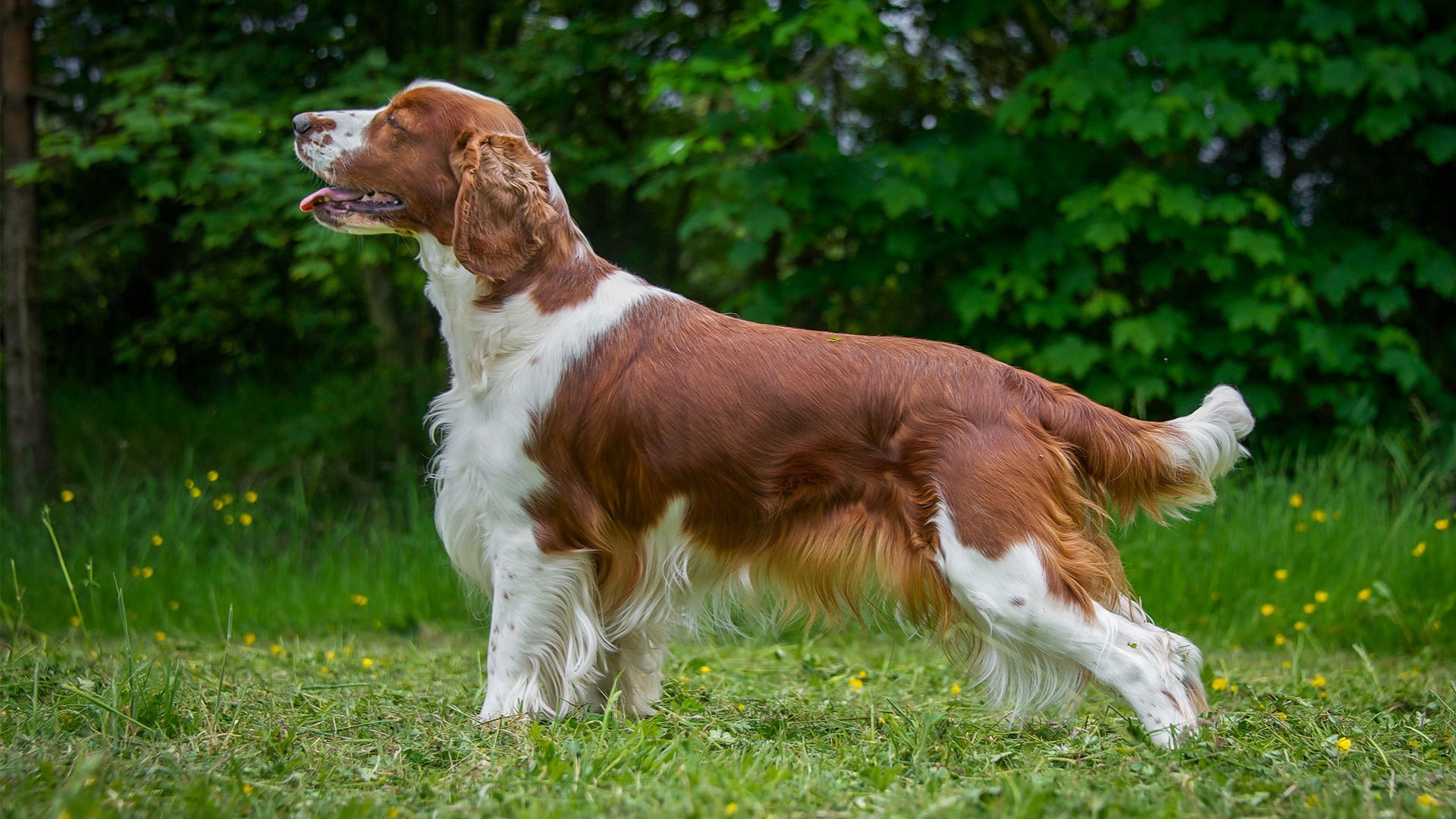Among America’s homegrown dog breeds, the Boykin Spaniel stands out as a testament to practical Southern ingenuity and purpose-driven breeding. Developed in the early 1900s specifically for hunting in South Carolina’s Wateree River Swamp, these medium-sized, chocolate-colored sporting dogs combine remarkable versatility with genuine Southern charm and adaptability.
At pawtrix.wiki, we take special pleasure in highlighting breeds with distinctive American heritage, and the Boykin Spaniel represents a true American success story. Affectionately known as “the little brown dog” or “South Carolina’s dog,” Boykins have evolved from specialized hunting companions to beloved family pets while maintaining their working abilities and distinctive character.
What makes this breed particularly fascinating is its relatively recent development and remarkably focused purpose. Created to hunt from small boats without rocking them and to effectively work both upland game and waterfowl in the diverse hunting conditions of South Carolina, Boykins embody efficiency and versatility in a compact, energetic package.
Throughout this guide, we’ll explore everything that defines the Boykin Spaniel – from their development by South Carolina hunters to their physical and temperament traits, care requirements, and whether they might be the right match for your lifestyle. By the end, you’ll understand why Boykin enthusiasts are so passionate about preserving and celebrating this distinctly American sporting breed.
South Carolina Origins: The Little Brown Dog
The Boykin Spaniel has one of the most well-documented origin stories of any breed, with its development tracing back to a specific time, place, and even a single foundational dog in the early 1900s.
The Founding Dog and Early Development
The breed’s story begins around 1911 in Spartanburg, South Carolina, when a small, stray brown spaniel followed Alexander White home from church. White, not being a hunter himself, sent the dog (named “Dumpy”) to his hunting partner L. Whitaker Boykin in the community of Boykin, South Carolina, near Camden.
Boykin recognized the dog’s natural hunting ability and began developing a breeding program around him. The goal was specific and practical: to create a medium-sized versatile hunting dog that could:
- Hunt both upland birds and waterfowl effectively
- Be small enough to ride in the small boats (called “section boats”) used in the Wateree River Swamp
- Be sturdy enough for rigorous hunting in diverse conditions
- Have stamina for all-day hunting
- Possess a willing, trainable temperament
Through selective breeding combining various spaniel types, potentially including Chesapeake Bay Retrievers, Springer Spaniels, Cocker Spaniels, and American Water Spaniels, Boykin created a distinctive new breed perfectly adapted to the specific hunting conditions of South Carolina.
Growth of the Breed
For many decades, the Boykin Spaniel remained primarily in South Carolina, developed by hunters for hunters with little concern for standardization or recognition. The breed gradually gained recognition within the state, becoming popular with turkey and duck hunters who appreciated their versatility and appropriate size.
In 1977, enthusiasts formed the Boykin Spaniel Society (BSS) to preserve the breed’s hunting abilities and distinctive characteristics. The BSS established the breed standard and began maintaining studbooks and promoting responsible breeding practices.
Recognition beyond South Carolina came gradually:
- 1985: Named the Official State Dog of South Carolina
- 1995: Recognized by the United Kennel Club
- 2009: Received full recognition from the American Kennel Club
Despite this recent wider recognition, the Boykin Spaniel Society remains the primary registry and advocate for the breed, maintaining a strong focus on preserving working ability alongside conformation characteristics.
Modern Conservation and Growth
Today, while still most common in the Southeastern United States, Boykin Spaniels have gained enthusiasts nationwide. They remain primarily working dogs and family companions rather than show dogs, although they do compete successfully in AKC sporting events.
Unlike many sporting breeds that have developed separate show and field lines with dramatically different appearances and temperaments, Boykins have largely maintained their original, moderate type. This unity of purpose has helped preserve their versatile working abilities while making them adaptable family companions.
The breed continues to grow in popularity while maintaining a strong connection to its South Carolina heritage and working purpose. Dedicated breeders focus on maintaining health, working ability, and the distinctive temperament that makes Boykins special.
Distinctive Appearance: Compact and Capable
The Boykin Spaniel has a distinctive appearance that clearly reflects its development as a practical, versatile hunting dog for the specific conditions of South Carolina.
Size and Structure: The Perfect Boat Dog
Boykin Spaniels are medium-sized dogs with substantial build for their size:
- Height: 14-18 inches at the shoulder
- Weight: 25-40 pounds (males typically larger than females)
- Body: Slightly longer than tall, with moderate bone
- Chest: Deep and wide for stamina and swimming ability
- Overall impression: Sturdy and substantial without being heavy
This size was specifically designed to create a dog that wouldn’t rock the small boats used in the Wateree River Swamp when moving or retrieving game. Despite their moderate size, they possess considerable strength and endurance, allowing them to work tirelessly in challenging hunting conditions.
Their build emphasizes function over flash – they’re sturdy, well-muscled working dogs without exaggerated features. Every aspect of their physical structure supports their original purpose as versatile hunting companions in varied terrains.
The Rich Chocolate Coat
Perhaps the most immediately recognizable feature of the Boykin Spaniel is their distinctive coat:
- Color: Rich chocolate brown to liver; occasional small white spot on chest
- Texture: Medium-length with moderate feathering; flat or slightly wavy
- Undercoat: Weather-resistant with moderate density
- Head: Typically has shorter, smoother coat compared to body
- Purpose: Designed for protection in varied hunting conditions
The liver/chocolate coloration provided natural camouflage in the swampy environments where these dogs typically worked. Unlike some sporting breeds that come in various colors, the Boykin is almost exclusively solid liver brown, creating a distinctive and immediately recognizable appearance.
The coat’s texture provides good protection from elements and underbrush without requiring excessive maintenance. It’s a practical, working coat that balances protection with manageable care – another reflection of the breed’s development for function rather than appearance.
The Expressive Face
Boykin Spaniels have a characteristic expression that combines alertness with warmth:
- Head: Broader than some spaniels, with rounded skull
- Muzzle: Medium length, slightly tapered
- Eyes: Oval-shaped, ranging from yellow to amber to brown
- Ears: Long, set slightly above eye level, feathered and pendulous
- Expression: Alert, intelligent, and often described as “soft” or “sweet”
Their eyes are particularly expressive, often showing a mixture of intelligence, eagerness, and gentle sensitivity that owners find irresistible. The overall expression tends to be softer and warmer than some other sporting breeds, contributing to their appeal as family companions.
The traditional Boykin has a characteristic “spaniel face” but with some distinctive features that set them apart from other spaniel breeds – slightly broader skull, moderately defined stop, and that characteristic alert but sweet expression.
Movement and Presence
The Boykin Spaniel moves with purpose and efficiency:
- Gait: Smooth, ground-covering stride with good reach and drive
- Tail: Traditionally docked to medium length, carried horizontally or slightly elevated
- Carriage: Alert and attentive without nervousness or hyperactivity
- Overall impression: A capable, athletic working dog with moderate, balanced movement
Their movement reflects their development as dogs that needed to cover varied terrain efficiently throughout a full day of hunting. Nothing about the Boykin is extreme or flashy – they embody the practical Southern approach to creating a dog that could do multiple jobs effectively.
When alert or working, their enthusiasm shows in their attentive expression and body language. At rest, they tend to present a calm, steady demeanor that belies their considerable energy when engaged in activities.
The Boykin Personality: Versatile and Willing
Beyond their distinctive appearance, Boykin Spaniels possess a temperament that combines classic spaniel enthusiasm with some unique characteristics that reflect their development as versatile hunting companions in the American South.
The Eager Worker
True to their sporting heritage, Boykins approach tasks with enthusiasm and purpose:
- Naturally eager to please and work with their people
- High energy and drive when engaged in activities
- Versatile working abilities for different tasks
- Strong retrieving instincts, often showing natural tendencies
- Persistent and determined when motivated
This work ethic stems from their development as personal hunting companions for hunters who needed dogs that would work enthusiastically all day across varied terrain. Modern Boykins maintain this drive, showing genuine enthusiasm for activities that engage their natural abilities – particularly anything involving water, retrieving, or scenting work.
Their eagerness to please makes them relatively easy to train compared to some more independent sporting breeds. They genuinely want to work with their people and understand what’s expected of them, making them responsive to consistent, positive training approaches.
The Adaptable Companion
One of the Boykin’s most valued traits is adaptability:
- Can transition from active outdoor work to calm indoor companion
- Bonds deeply with family but not typically overly dependent
- Adjusts well to different household routines and activities
- Generally good with children and other pets when properly socialized
- Moderate awareness of social hierarchies without extreme dominance
This adaptability makes them excellent family dogs who can match their energy level to household activities – enthusiastically participating in outdoor adventures but settling down appropriately indoors. They typically develop strong bonds with their entire family rather than attaching exclusively to one person.
Their natural sociability and moderate temperament make them good candidates for homes with children and other pets, though proper socialization is always important. They tend to be aware of social hierarchies without being excessively dominant or submissive.
The Boykin Personality Spectrum
While consistent in their core traits, Boykins do show some variety in temperament:
- Some lean toward higher energy and intense working drive
- Others show more laid-back, easy-going personalities
- Most maintain puppy-like enthusiasm well into adulthood
- Intelligence ranges from clever problem-solving to straightforward thinking
- Sensitivity levels vary from resilient to somewhat soft-tempered
This variation reflects the breed’s relatively recent development and practical focus on working ability rather than standardized temperament. Good breeders recognize these differences and work to match puppy personalities with appropriate homes – more driven dogs going to active, working homes and more moderate temperaments to family settings.
Despite these variations, most Boykins maintain the breed’s characteristic enthusiasm, adaptability, and genuine enjoyment of both work and family life. They typically embody a pleasant balance of working drive and companionable nature.
Social Behavior
Boykin Spaniels have distinctive social patterns:
- Generally friendly and outgoing with people
- May show some initial reserve with strangers, but rarely fearful
- Typically get along well with other dogs
- Often have moderate prey drive that can be managed
- Social awareness that helps them adapt to different situations
Their social nature makes them poor guard dogs but excellent companions who typically welcome visitors after brief introductions. Unlike some sporting breeds that can be hyperactive in social situations, Boykins often show a more moderate enthusiasm – friendly but not overwhelming.
With other dogs, they typically display good social skills, though like all dogs, they benefit from proper socialization from puppyhood. Their hunting background means they may show interest in small animals, but many live successfully with household cats and other pets when raised together.
Living With a Boykin Spaniel: Practical Considerations
Beyond their appealing personality and distinctive appearance, what’s it actually like to share your daily life with a Boykin Spaniel? Let’s explore the practical aspects that potential owners should consider.
Exercise Requirements: Moderate but Essential
Boykin Spaniels need regular exercise to stay physically and mentally balanced:
- Require 30-60 minutes of active exercise daily
- Thrive with a variety of activities rather than just walks
- Love water-based recreation when available
- Need mental as well as physical challenges
- Show good “off switch” indoors when properly exercised
While they don’t typically demand the extreme exercise regimens of some sporting breeds, consistent activity is essential for a happy, well-behaved Boykin. Without appropriate outlets for their energy, they can become restless, potentially destructive, or develop nuisance behaviors.
Their versatile nature means they enjoy and excel at various activities – retrieving games, swimming, hiking, exploring varied environments, and dog sports like agility or hunt tests. Activities that engage their natural abilities are particularly satisfying for them and help maintain their mental and physical balance.
Training Approach: Consistency and Positivity
Successfully training a Boykin Spaniel involves understanding their learning style:
- Intelligent and eager to please but with some independence
- Respond excellently to positive, reward-based methods
- Need consistency in expectations and commands
- Sometimes show sensitivity to harsh corrections
- Thrive with training that engages their natural abilities
Their intelligence and desire to work with people make Boykins generally easy to train compared to some more independent sporting breeds. They typically learn quickly and respond well to praise, play, and food rewards.
Many Boykins show some sensitivity to harsh corrections, which can damage their enthusiasm and confidence. The most successful training approaches focus on showing them what you want rather than punishing what you don’t want, building a cooperative partnership rather than a strict hierarchy.
Grooming Needs: Moderate Maintenance
The Boykin’s coat requires regular but not excessive maintenance:
- Brush 2-3 times weekly to prevent mats and remove loose hair
- Pay special attention to feathering on legs, chest, and ears
- Check and clean ears regularly (prone to infections like many spaniels)
- Occasional trimming around feet, ears, and sanitary areas
- Bathe only when necessary to preserve natural oils
Their medium-length coat can collect debris during outdoor activities, particularly in the feathering on legs and ears. Regular brushing helps prevent matting and removes this debris while distributing natural oils for coat health.
Like all drop-eared breeds, Boykins are prone to ear infections, particularly if they spend time in water. Regular ear checks and cleaning help prevent these problems, especially after swimming or bathing.
Health Considerations: Generally Healthy
Boykin Spaniels are generally healthy dogs with a lifespan of 10-15 years, but like all breeds, they have some health considerations:
- Hip and elbow dysplasia
- Eye conditions including cataracts and retinal issues
- Exercise-induced collapse in some lines
- Cardiac issues including patent ductus arteriosus
- Skin and ear issues typical of sporting breeds
Working with a reputable breeder who conducts appropriate health testing is the best way to reduce these risks. The Boykin Spaniel Society and responsible breeders prioritize genetic health testing and careful breeding practices to maintain the breed’s overall health.
Regular veterinary check-ups, appropriate weight management, and preventative care can help address or prevent many common health issues. Their ears and skin may require particular attention, especially for dogs who spend time in water or dense cover.
Living Arrangements and Home Environment
Boykin Spaniels can adapt to various living situations with proper consideration:
- Do well in active families with secure outdoor access
- Can adapt to suburban environments with sufficient exercise
- Not ideal for apartment living without significant exercise commitment
- Appreciate access to water when possible
- Need secure fencing due to hunting instincts and exploring nature
Their moderate size makes them less cumbersome in the home than larger sporting breeds, but they do need space to move comfortably. Their energy level means they typically do best in environments where they have regular access to outdoor activities.
While they can adapt to various living situations, they don’t thrive when isolated for long periods or confined without adequate exercise. They’re people-oriented dogs who want to be involved in family activities rather than left alone in a yard or kennel.
Boykins and Families: The Perfect Match?
Boykin Spaniels often make excellent family companions, combining the best qualities of sporting dogs with adaptable, friendly temperaments that fit well into active household settings.
With Children: Energetic Playmates
Boykins typically show excellent compatibility with family children:
- Playful and energetic without overwhelming small children
- Patient with handling when properly socialized
- Appropriate size – substantial enough for play but not too large
- Adaptable to children’s activities and energy levels
- Protective without aggression toward family kids
Their medium size and generally gentle nature make them good companions for children of various ages. They’re sturdy enough to handle gentle play without being so large as to accidentally knock over small children during normal interactions.
Like all dogs, they benefit from proper socialization with children from an early age, and children should be taught appropriate respect for the dog’s space and needs. With proper introductions and supervision, Boykins often form close bonds with the children in their family.
Multi-Pet Households
Boykins typically integrate well into homes with other pets:
- Generally get along well with other dogs
- Can learn to live peacefully with cats, especially when raised together
- May have some prey drive toward very small pets like rodents or birds
- Usually willing to share territory and resources with proper introduction
- Moderate play style that adapts to different companion animals
Their social nature typically extends to other household pets, particularly other dogs. Many Boykins live harmoniously with cats, especially when introduced during puppyhood or when the cat is already established in the household.
Their hunting background does create some prey drive, which may be directed toward very small pets like hamsters or birds. Households with such pets should exercise appropriate caution and supervision, though many Boykins learn to distinguish between “family” animals and wildlife.
The Ideal Boykin Home
These versatile dogs tend to thrive in these types of environments:
- Active families who enjoy outdoor recreation
- Households with secure outdoor spaces
- Homes where the dog will be included in daily activities
- Families seeking a medium-sized, versatile companion
- Settings where their intelligence and energy can be positively channeled
They may be less ideal for:
- Very sedentary households with limited activity
- Environments where the dog would be left alone for extended periods
- Homes seeking a guard dog or protective breed
- Those wanting an extremely independent, low-maintenance pet
- Families unprepared for regular exercise and training
The happiest Boykins are those who are treated as full family members and included in daily activities while having their exercise, training, and companionship needs met. Their versatile nature means they can adapt to various family structures and lifestyles, but they do best with people who appreciate their distinctive character and are committed to providing appropriate outlets for their energy and intelligence.
Finding Your Boykin Spaniel: Resources and Considerations
If you’ve decided a Boykin Spaniel might be right for your family, there are several paths to consider in your search for a healthy, well-bred companion.
Working with Reputable Breeders
Finding a responsible breeder is crucial for a healthy, well-adjusted Boykin:
- Connect with the Boykin Spaniel Society for breeder referrals
- Look for breeders who perform health testing (hips, eyes, EIC)
- Ask about their involvement with the breed and their goals
- Expect to be thoroughly interviewed about your lifestyle and expectations
- Be prepared for a possible waiting list for a well-bred puppy
Reputable breeders prioritize health, temperament, and proper physical structure over simply producing puppies for profit. They typically invest considerable time and resources in appropriate health testing, careful breeding decisions, and proper puppy raising practices.
The Boykin Spaniel Society maintains a breeder directory and can provide guidance to potential owners. While AKC recognition has increased the breed’s visibility, the BSS remains the primary registry focused specifically on maintaining the breed’s working heritage and distinctive qualities.
Rescue and Adoption Opportunities
For those open to adult dogs, rescue can be a wonderful option:
- Boykin Spaniel Rescue works to rehome dogs in need
- Some dogs come through breed-specific rescue networks
- General sporting dog rescues occasionally have Boykins
- Adult dogs often have known personalities and basic training
- Adoption fees typically include initial veterinary care
While not as common in rescue as some more popular breeds, Boykins do sometimes need new homes due to owner circumstances rather than behavioral issues. Rescue organizations carefully evaluate dogs and work to match them with appropriate new homes based on energy level, temperament, and specific needs.
Adult dogs can be excellent choices for many families, often coming with basic training and settled personalities. The adjustment period for rescued dogs varies but typically results in devoted companions grateful for their new homes.
Questions to Ask Before Committing
Before bringing a Boykin Spaniel into your life, honestly assess:
- Can you provide the daily exercise and mental stimulation these dogs require?
- Is your home environment suitable for an active, medium-sized sporting dog?
- Are you prepared for the grooming requirements, including regular ear care?
- Can you commit to the training and socialization needed for a well-adjusted dog?
- Are you prepared for a 10-15 year commitment to this dog?
- Do you have access to veterinary care from professionals familiar with sporting breeds?
Taking the time for self-assessment helps ensure a successful match between your lifestyle and the needs of a Boykin Spaniel. Remember that responsible ownership means meeting the dog’s needs, not just fulfilling your desire for a particular breed.
Conclusion: Is a Boykin Spaniel Right for You?
After exploring the world of Boykin Spaniels, you might be wondering if this distinctive breed is the right match for your lifestyle and home.
Boykin Spaniels offer a wonderful combination of moderate size, versatile abilities, and adaptable temperament that makes them excellent companions for active families. Their development as practical, all-purpose hunting dogs created animals with genuine enthusiasm for work and play balanced with a pleasant disposition in the home. For those seeking a medium-sized sporting dog with character and heart, they can be wonderful partners.
However, they’re not for everyone. Their energy level means they need regular exercise and mental stimulation. Their sporting heritage means they have instincts that need appropriate outlets. Their people-oriented nature means they don’t thrive when isolated or ignored.
The perfect Boykin Spaniel owner is someone who:
- Enjoys regular outdoor activities and wants a canine companion to join them
- Appreciates a dog with distinctive character and heritage
- Can provide consistent, positive training
- Values an adaptable, medium-sized sporting dog
- Is committed to meeting the needs of an intelligent, active breed
If you’re considering a Boykin Spaniel, connect with the Boykin Spaniel Society, speak with experienced owners, and if possible, meet adult dogs to get a feel for their energy level and temperament. Remember that choosing a dog is a commitment for the entirety of that dog’s life—ideally 10-15 years for a healthy Boykin Spaniel.
For those who do choose a Boykin Spaniel and commit to meeting their needs, the rewards are substantial—an enthusiastic, versatile companion with a distinctive appearance and character, who approaches life with energy and heart, and whose adaptable nature makes them wonderful partners for a variety of activities and lifestyles.
Here at pawtrix.wiki, we believe in matching the right dog with the right home. If the Boykin Spaniel’s unique combination of versatility, moderate size, and Southern charm speaks to you, you might have found your perfect canine companion—a truly American breed with a distinctive history and character that continues to win devoted fans while maintaining its working heritage and adaptable, friendly nature.
